1931 / James Whale > Regardless of what kind of classic status Whale’s Frankenstein may hold in the annals of cinema, the fact that it mostly circumvents the humanist touches of Mary Shelley’s original work keeps it from actually being a great film. So much of this hinges on the simple fact that the creature is never given a chance to grow and mature. In the novel, it’s Frankenstein’s fear that drives the creature into madness, but here it’s the doctor’s assistant making a mistake by providing an “abnormal brain” for the experiment. Therefore any sort of commentary the film tries to make becomes null. Criminal brains do criminal things, so where’s the lesson of morality and the God factor? Shelley tried to warn of taking life and death into the scientific framework whereas Whale gives us no particular basis to believe that it’s good or bad, simply that you have to make sure to pick the brain of a gentle, loving person in order to create a creature that may also be gentle and loving. When the viewer already expects the worst, then the compassion for the creature is lost, and in the process, so is the wonder and warning within the story.
Category Archives: United States/Canada

Chaplin
1992 / Richard Attenborough > Considering the spotlight on Robert Downey, Jr. post-Iron Man, it’s shocking that more people haven’t brought up his magnificent performance in Chaplin. Even now, watching Charlie’s flicks, I can’t help but substitute in Downey’s face without a worry. At age 27, he mimicked the lives of one of the most magnetic performers in cinematic history yet it feels as if no one remembers. Some of this blame arguably goes to Attenborough for taking an unorthodox approach to a biopic by focusing on Chaplin’s love affairs to progress the storyline, which led to slightly uneven pacing and treatment of his work as almost secondary. While this may have resulted in mixed critical response, there’s no denying that his life did indeed revolve around women, and that the longing for his first love led to multiple marriages to younger and younger women. Furthermore, there was at least 12 minutes cut from the director’s version and almost two hours left on the cutting floor altogether. Who knows how much better this would have made it, but even as it stands, it’s an incredibly enjoyable piece about a fascinating icon of culture and is worth viewing to get a glimpse into him and his works as well as the ridiculousness of the McCarthy era.

The Girlfriend Experience
2009 / Steven Soderbergh > The big question everyone will be asking is, “Can Sasha Grey act?” Sad to say, the pornographic star’s crossover role has such a limited emotional palette that it’s hard to tell. Her character is the subdued type, quiet and reserved except for bursts of emotion inflicted at a loved one. And the story itself is Pretty Woman with a tinge of cynicism. Credit to Soderbergh for giving the girl a chance (as I’d love to see her do more work outside of the realm of the skin and saliva), and for fleshing up the sights of Lower Manhattan true to life. But from those basics, the film is a study of the world’s oldest profession in its modern setting without really bringing anything we didn’t already know. Were it a character piece, I could understand, but even that doesn’t seem to really fit into the details of the script. Even the stints at social commentary via the clientele’s morning shoptalk is too lackadaisical to derive some level of interest.
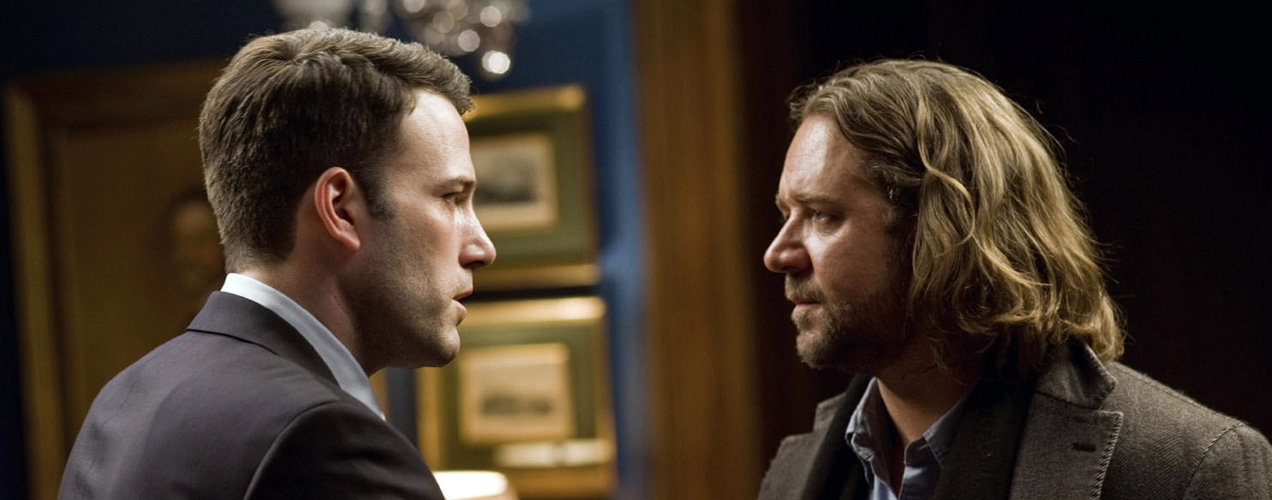
State of Play
2009 / Kevin Macdonald > Frankly, there was no way this film could make me happy. The original 2003 BBC miniseries on which this is based is one of my single favorite pieces of television ever. It’s clever, thrilling and intelligent. John Simm in the lead is downright brilliant and the rest of the cast is near perfect. But in the process of cramming six fantastic hours into two for the global mainstream audience, quite a bit of detail and charm has been lost. While it remains a rather well-made film, the last third seems rushed and increasingly trite. The pacing of the movie kills the appreciation of the character motivations and starts insulting the viewer’s intelligence. Incidentally, the same storyline in the miniseries successfully orchestrates these emotions. Thus, I can’t stress enough that everyone should give the original a chance. Avoid a couple of clunkers this summer and spent those extra four hours diving into this riveting Brit drama and come out much more satisfied.
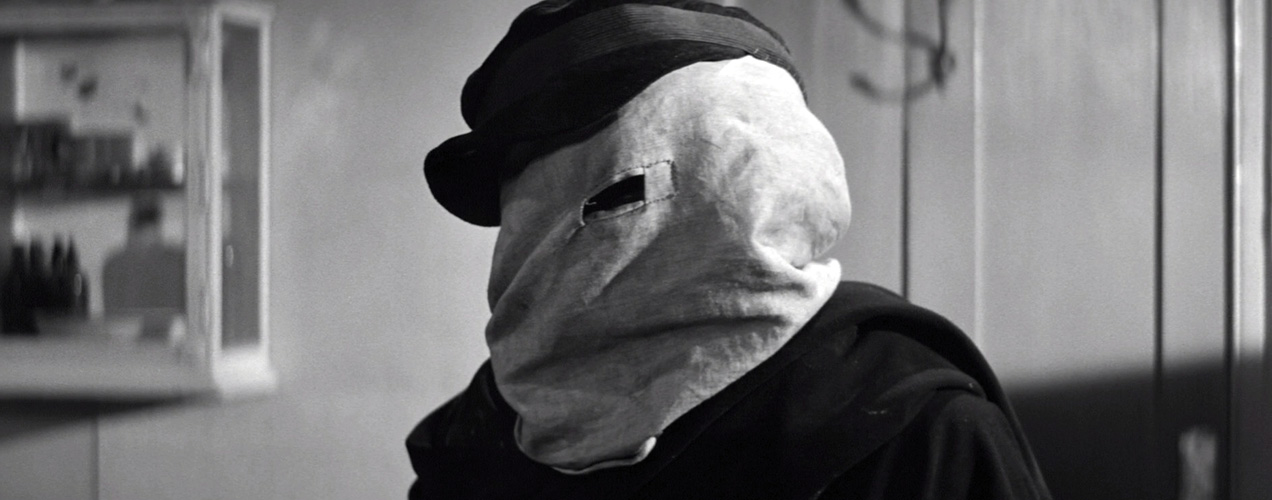
The Elephant Man
1980 / David Lynch > When dealing with subject of such social sensitivity as Joseph Merrick, the so-called “Elephant Man,” directors are put in a very tight spot: They can either go balls-out with sympathetic adoration, or stay back and reduce the emotions in order to portray the objective viewpoint. Lynch, as confident and masterful has he thinks he is, tries to combine the two into proving a fuller experience. It’s unfortunate, then, that I personally just didn’t find much satisfaction in his overall presentation. Save for the famous “I am not an animal!” cry, I found The Elephant Man mostly uninteresting, if well-made. The question we have to ask as viewers is fairly simple: Was Merrick actually an interesting person? Is he worthy of being made a film about? Or are we falling into the same trap as circus goers and simply praising a film because it involves a deformed man of possible intelligence, and we simply cannot be caught failing to extend our hearts to him?
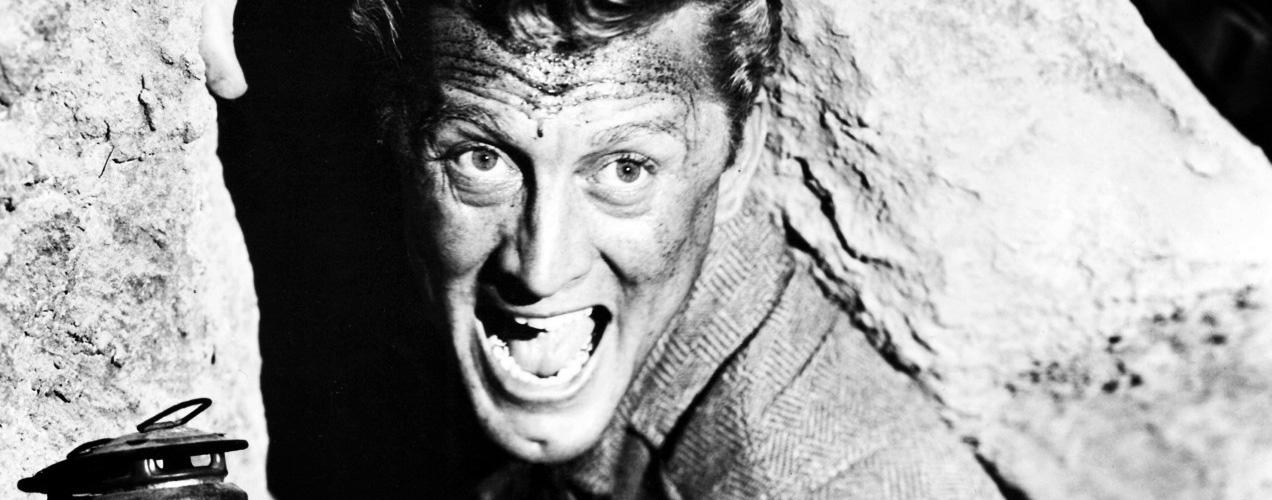
Ace in the Hole
1951 / Billy Wilder > Now, Billy, you’ve failed me here. This story of exploitation may have gotten a rise out of people back in the day, but it’s aged faster than anything else I’ve ever seen by you. Even Kirk Douglas seems like he’s too busy acting to actually play his part. Something about how simple you make everything seem in Ace in the Hole just doesn’t feel right. The morality is too clear cut, and if I really wanted to doubt my conscience, maybe I’d go back to watch the layered Sweet Smell of Success instead! Or am I just feeling backlash to the sudden sprouting of liberal guilt in our current media environment?
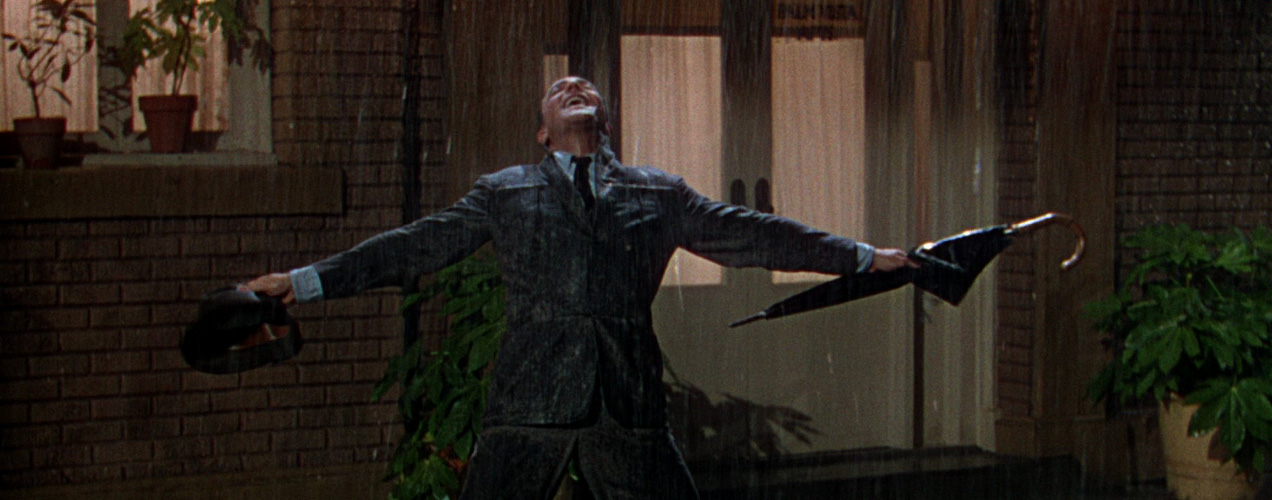
Singin’ in the Rain
1952 / Stanley Donen & Gene Kelly > With the possible exception of Cary Grant, I can’t imagine anyone more suave than Gene Kelly in classic cinema. He’s got the type of charisma that makes movies, careers and eventually legends, and he puts it all on display in Singin’ in the Rain. The fact that the famous title sequence was actually performed when the actor had a 103° fever just makes it that much more extraordinary. But as a film, you can often tell that the story itself was written to match the musical numbers. But let’s face it: You don’t watch this for plot, you watch it to see Kelly and Debbie Reynolds and Cyd Charisse dance and sing and dance again. For that, it’s absolutely dandy. In fact, the wondrous Broadway sequence, with its innovative set designs and dazzling colors, is alone the worth the price of admission.

Casino
1995 / Martin Scorsese > There is no Henry Hill in Casino, and that kills it. Scorsese had a hook in Goodfellas with Ray Liotta’s Hill as a guy you could cheer for. Someone caught up in the shebang and rightfully taking advantage of it. Someone you could like. But this three hour long venture finds Joe Pesci another despicable gangster to play, but one that isn’t counter-balanced. Throw in the working girl-cum-druggie, deceitful wife in Sharon Stone’s Ginger and the scales just tip in ways from where there is no retribution. Why is that so troubling? Because this is, technically, a fantastic piece of work. The production may be one of the finest the director’s ever put on, and that’s why its mediocrity is so tragic. I just didn’t care about anyone. I needed my Henry Hill.

It’s a Wonderful Life
1946 / Frank Capra > The television stations loved playing this every Christmas when I was growing up, but I never actually saw the whole thing. The moments I caught here and there over the years, I somewhat fused together, but until now, I never really understood the mythology of George Bailey. Consider this a spiritual companion piece to Memories of Matsuko: Sometimes the things that we want to do weren’t meant for us to begin with. Luck and circumstance are part of the game, and It’s a Wonderful Life shows us the grass doesn’t always have to be greener in order for a happier day. It’s highly manipulative, but ironically not nearly as sentimental as one would expect. By the end, we don’t really care because the manipulation was for a positive cause, because without it the modern moviegoer may be too cynical to enjoy a scene of sincere, unexpected happiness and joy. Could they make this now? I doubt it, but I’m happy that its spirit has barely aged in over half a century.
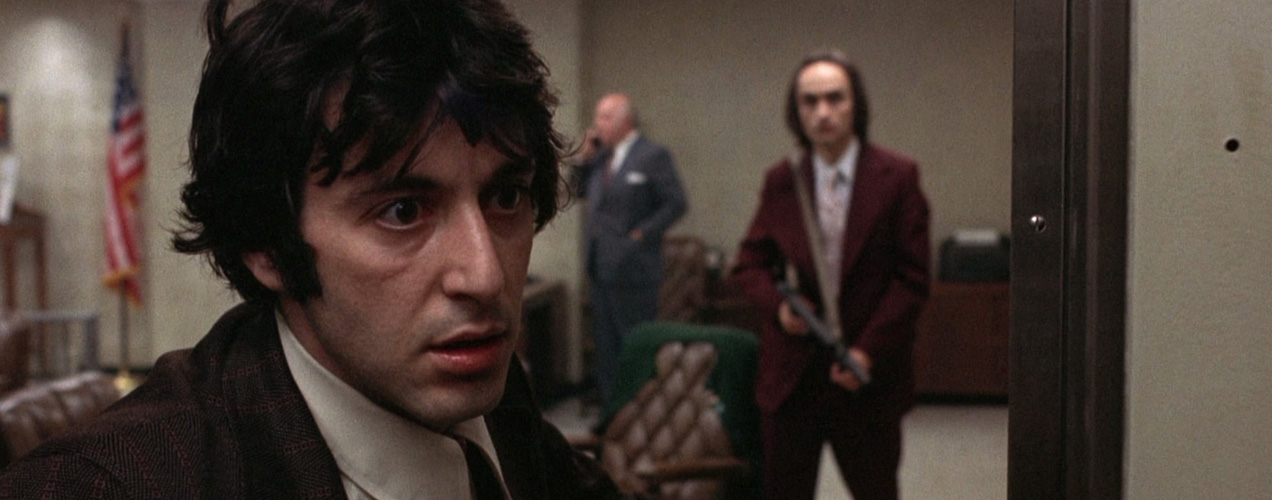
Dog Day Afternoon
1975 / Sidney Lumet > Bleaker than it initially comes off, Dog Day Afternoon is a scriptwriting achievement by Frank Pierson (who was rightfully awarded an Oscar for it). It head-on attacks society and the system in cleverly underhanded ways (i.e., who could have imagined a gay rally challenging the likes of Harvey Milk?) without being whimsical or, more importantly, impractical. It’s harsh but loving, and Lumet’s direction is nothing short of just right. Nothing really feels forced, and the phone call between Chris Sarandon and Al Pacino (fully improvised, amazingly) is a testament to the heart of the film.

